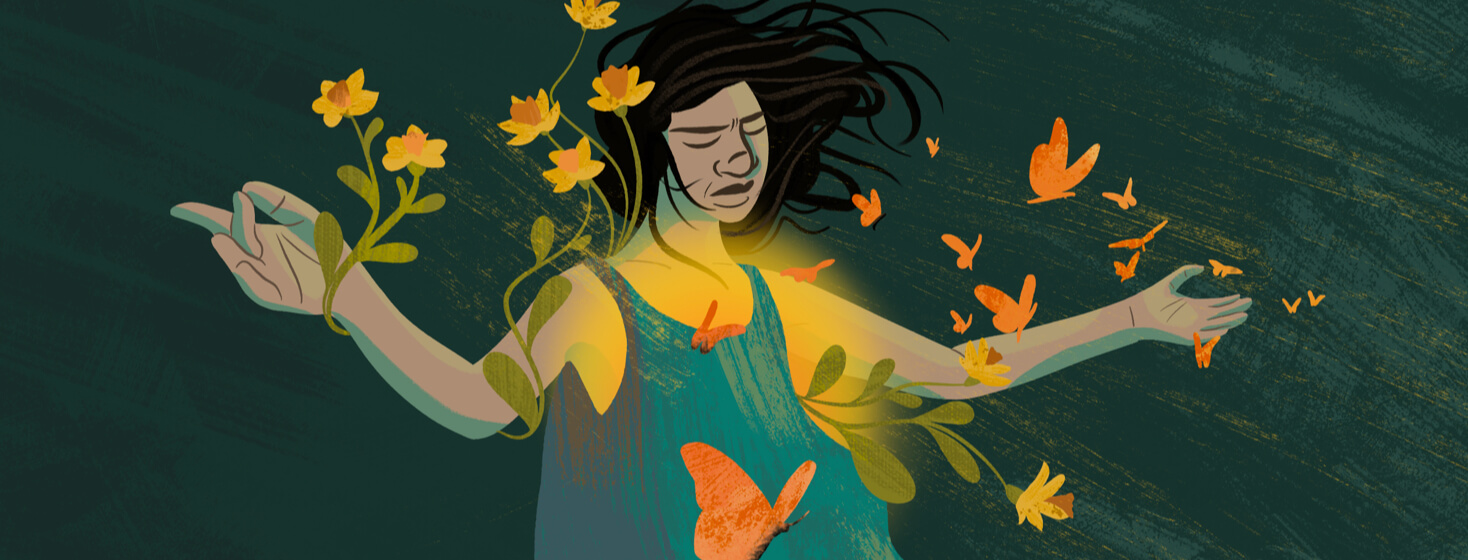Repeat After Me: "Migraine Is Not My Fault"
We are led to believe early on in our migraine journey - in imperceivable and pronounced ways, that we are to blame or at fault for migraine. Repeat after me: "Migraine is not my fault." Adopting and repeating this mantra can help offset the onslaught of sensations that come from society as a whole and loved ones that can cause us to feel at fault for having this disease. The condition itself is a major enough burden on its own that being made to feel bad or at fault for it is a weight too heavy to bear. Several dynamics and factors can heighten the sense that we are at fault for a disease we never chose.
How are we not to blame?
What muddies the waters as we try to make sense of whether or not we are at blame is the fact that we know we have the power to trigger or worsen an attack. For instance, in numerous ways, I can easily trigger an attack in a matter of minutes. By exposing myself to heat, bright lights, certain strong smells, overexertion, and ingestion of certain foods or drinks, I'm sure to trigger an attack. It doesn't mean I am at fault when an attack arises. Our bodies are made differently, making us more susceptible to these types of neurological events in the first place. Still, it's normal to question our role in relation to the presence of migraine attacks.
We can't control every attack
I've learned over the years what my triggers are and how to avoid them, living very carefully within the confines of my triggers. Yet even though I do, I still have migraine attacks on a daily basis. It's important to clarify that just because we have the ability to trigger or avoid an attack does not mean that we are at fault for or to blame for this disease.
So, what can we do?
When assigning blame and fault, we must evaluate ourselves for responding to the disease responsibly. If we are not taking care of ourselves, seeing a doctor, or following the treatment protocol we have been prescribed, we may have room for improvement.
Managing migraine responsibly
However, as long as we have assessed our triggers and are doing our best to avoid them; managing the disease by resting when we can, staying hydrated, seeing a migraine specialist regularly, and pursuing our assigned course of treatment at the appropriate times, we are doing all that's in our control. The rest of how migraine unfolds – including how often attacks hit and how long they last, how much of life we are forced to miss, how many plans get canceled - is all related to the fact that we have a disease that we cannot control.
Apologizing is akin to accepting blame
And speaking of, our migraine condition can be an inconvenience to others. It forces us to miss out on plans in a way that can hurt the feelings of loved ones. But one thing is for certain: we are more put out by this disease than anyone else in our lives. We didn't sign up for it either. We do not need to apologize for having migraine. Doing so can set up a dynamic in which we take ownership of a condition we never asked for.
We shouldn't feel guilty for asking for help
When we live with migraine, we may need support and assistance from time to time. Expressing gratitude to and for friends and loved ones who make an effort and come through for us is appropriate. However, using our limited well-energy to repeatedly thank someone who makes us feel guilty and as if we'll never be able to repay them is inappropriate.
Thanking others is kind, but we aren't in debt
Being made to feel less-than or at fault is a head trip we give ourselves frequently enough; thank you. We don't need anyone else adding to that narrative. Anyone who hasn't had a migraine will not be able to fully comprehend this condition, no matter how empathic they are. People who genuinely want to help others are moved to do so and aren't looking for acknowledgment. Be thoughtful about the people in your life and place yourself in a situation where there is an exchange of kindness, compassion, and respect.
My full mantra
Shedding ourselves from the hurtful narrative that we are at fault for a disease we never caused is easier said than done. It's also very important to do. For me, the lesson has come late in my journey. Letting go of the sense of blame involves a daily internal conversation with myself to say: "Migraine is heavy enough burden. I choose to let go of the weight of blame and fault. I did not choose migraine. I do not deserve this disease or any of the baggage that comes with it. It is my job to respond to migraine with care and to let the rest go as best I can. I'm not to blame for migraine. It is not my fault."
Do you struggle with feeling to blame or at fault for migraine? If so, can you share some of your journey with these challenges? Have you found ways to let go of these feelings? We'd love to learn from you in the comment section below and are so grateful to have you with us!

Join the conversation